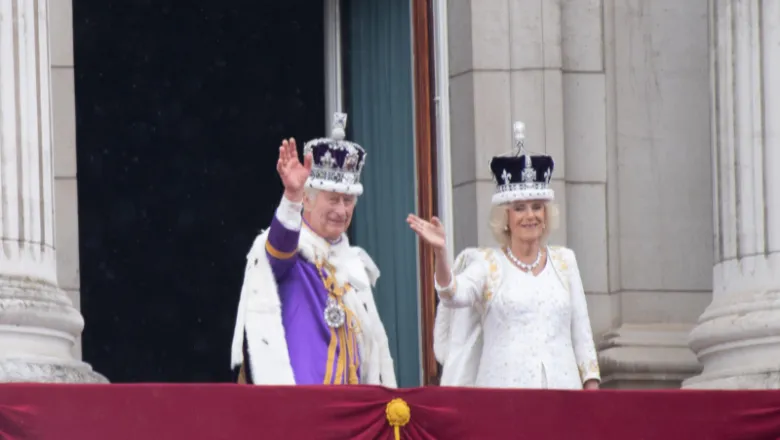Children in the UK are more in favour of the British monarchy than young adults, suggest new findings from a national survey.

To coincide with the Coronation of King Charles III in May last year, researchers from King's College London asked UK schoolchildren aged 6-12 to share their feelings about the British royal family.
An analysis of the responses from 1,996 children found almost two thirds (64.7%) said they were 'proud', 'excited', or 'happy' when asked how they felt about having a monarchy in the UK.
These results are in stark contrast to how 18-24 year-olds felt when surveyed by YouGov where just 30% of that age group said they saw the monarchy as 'good for Britain'.
"There have been a number of polls conducted looking at the future of the monarchy and what 'young people' think, with many drawing on 'deep generational divides', but very little has been done to understand how primary school age children feel about the British royal family. Our initial poll results certainly challenge the idea or consensus that the monarchy lacks support amongst younger people."
Lead researcher Dr George Gross, Visiting Research Fellow at King's College London
The survey accounted for pupils being educated in different school settings, with respondents from state, private and faith schools.
When breaking down the findings based on each setting, researchers found that privately educated pupils were the least likely to feel 'proud', 'excited', or 'happy' (55.7%) about having a monarchy in the UK, compared with those educated in state schools (65.9%) and those who attend faith schools (68%).
As well as their feelings towards the monarchy more broadly, all pupils were asked to consider how they felt about the tradition of crowning the new king. Across each sector, the Coronation (and associated build-up) attracted more positive responses than the question of monarchy itself, with 70.4% saying they felt 'proud', 'excited', or 'happy' when thinking about crowning the new monarch.
"It seems that more exposure to ideas, to the Coronation event itself, and to the history around the crowning of kings and queens, may be possible factors as to why young children responded more positively - a sign perhaps that from a monarchical standpoint a Coronation is an important element in maintaining the interest, imagination and support of those in school education."
Dr George Gross
"It is often thought that in later teenage years and early adulthood, people turn to more liberal ideas and then as they move towards retirement age, we see the reverse and a move towards more traditionalist ideas again. It is equally possible that children were excited by the Coronation events of last year with the build-up to May and this affirmatively impacted their view of the monarchy."
Researchers chose to survey children aged 6-12 as these are informative years when pupils are typically undertaking important assessments in English and Mathematics, and these are benchmarks for measuring aptitude/attainment.
The school survey was conducted as part of King's College London's British Coronations Project - an exhaustive study of the history of British Coronations that uncovered historic accounts and archive material that have never been documented before.
Ahead of King Charles III being crowned on May 6 2023, Dr Gross teamed up with the University of Roehampton and Arts Projects for Schools to offer teachers and children a chance to celebrate, commemorate and explore the many traditions of British Coronations.
Available to download for free through the UK Government website, the team of experts created a curriculum-based scheme of work for KS1 and KS2 pupils and teachers (P2-7 in Scotland and Northern Ireland), including classroom activities and lesson plans.
Further analysis is taking place of wider questions in the poll and breaking down the findings across different UK regions, however researchers argue these initial findings indicate that the picture is significantly more nuanced than has been reported to date.







